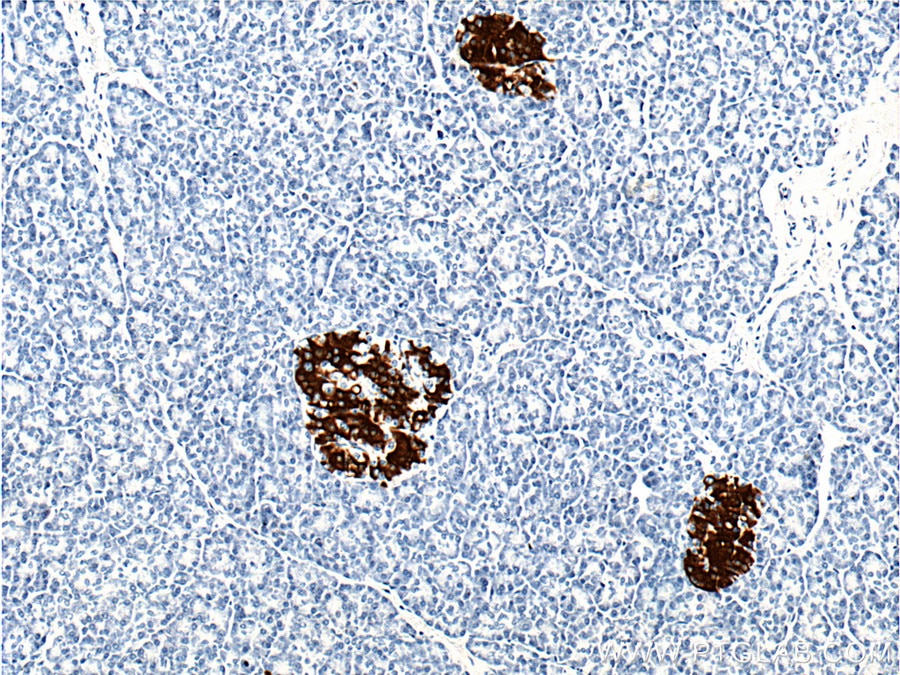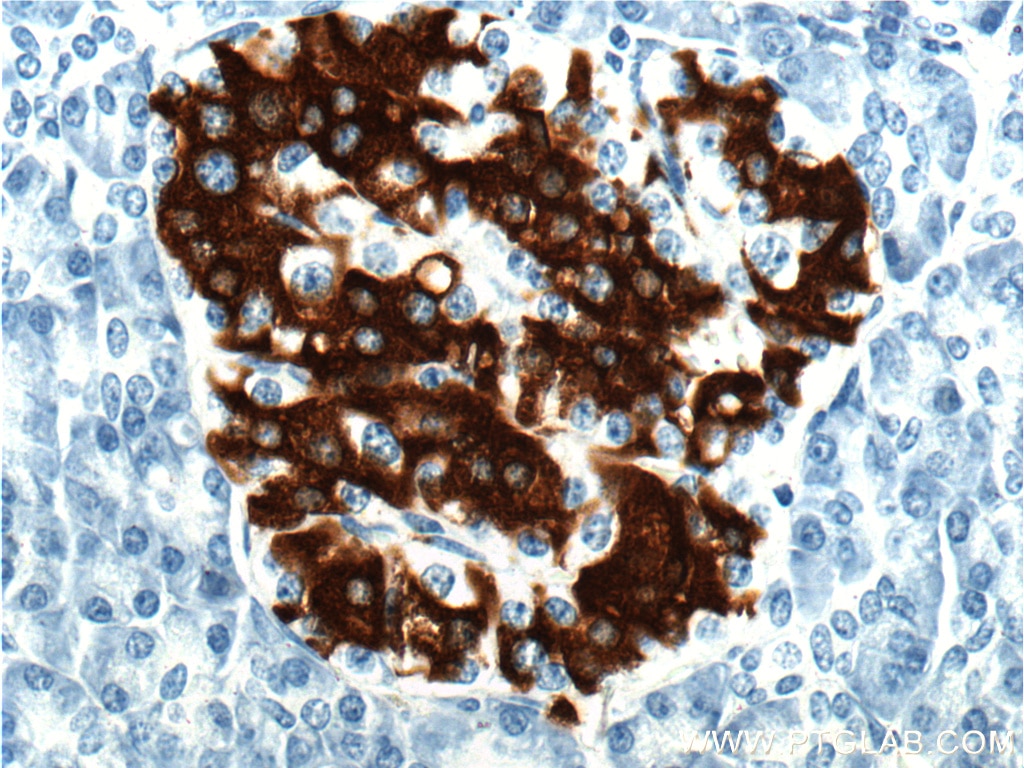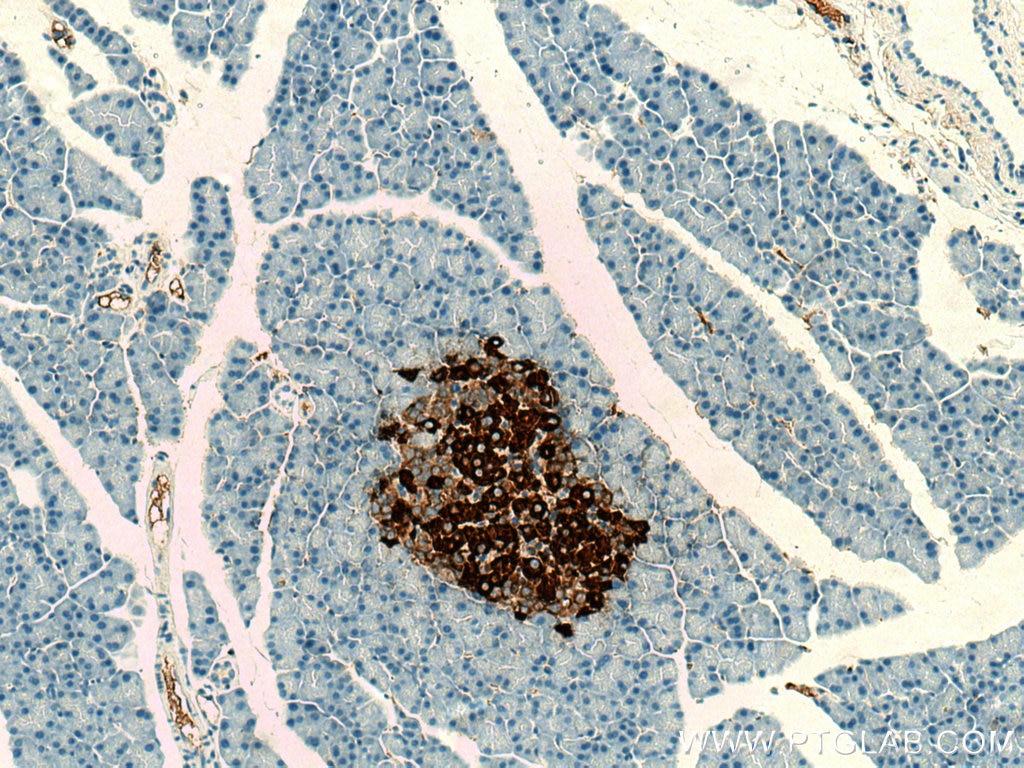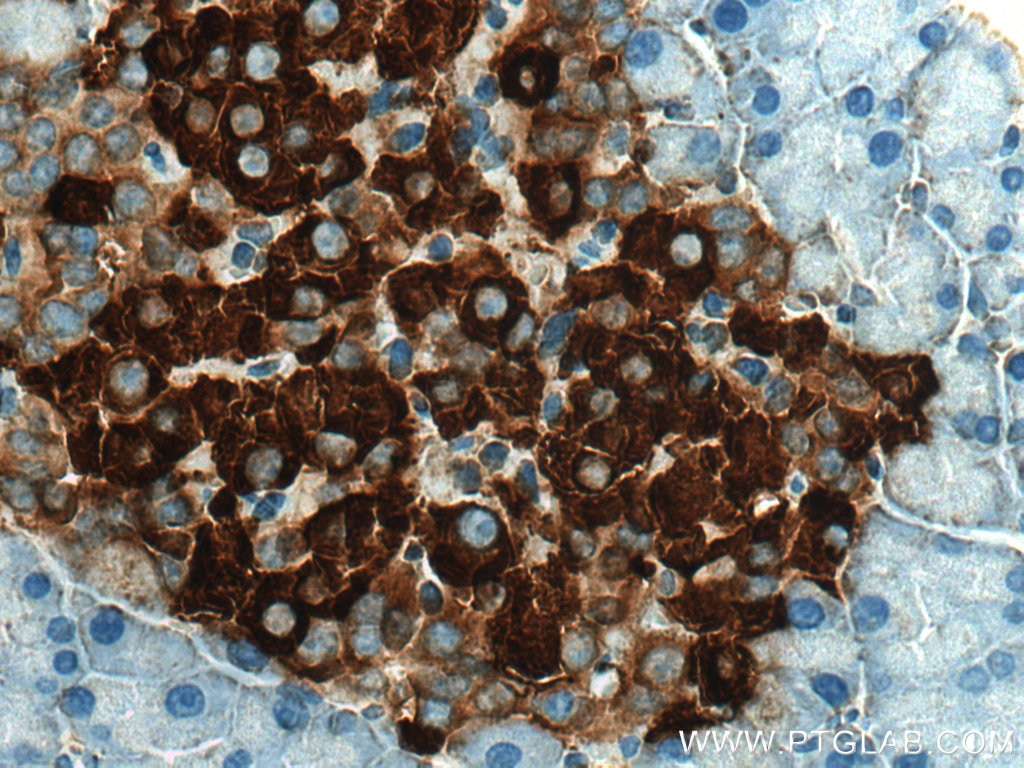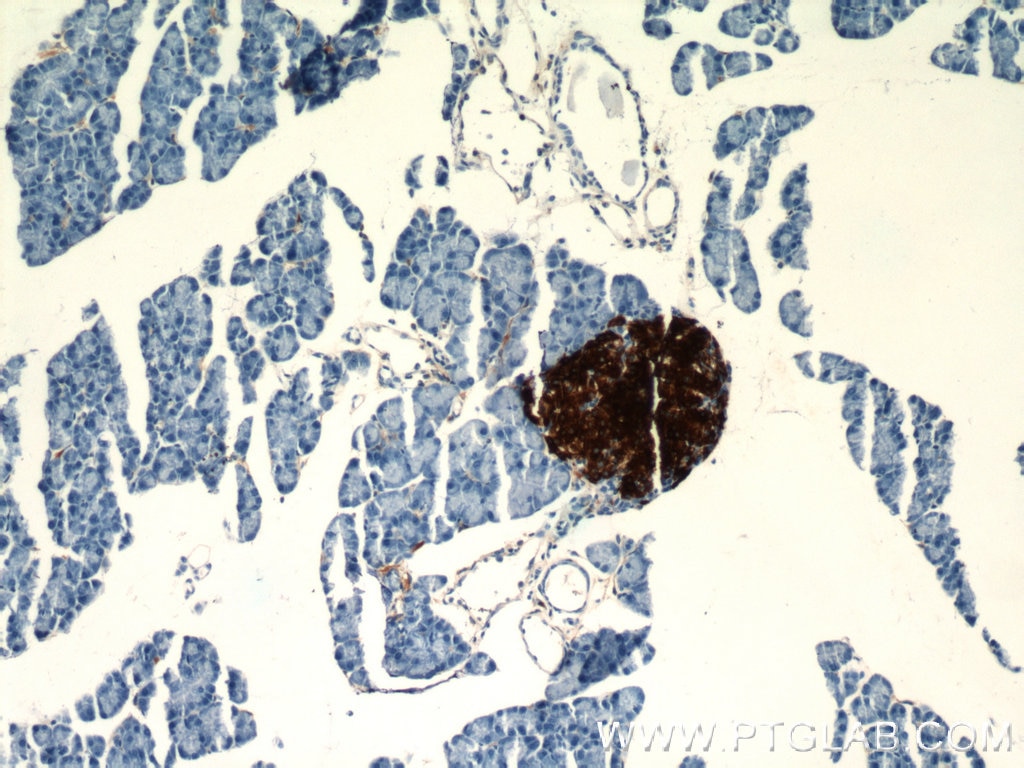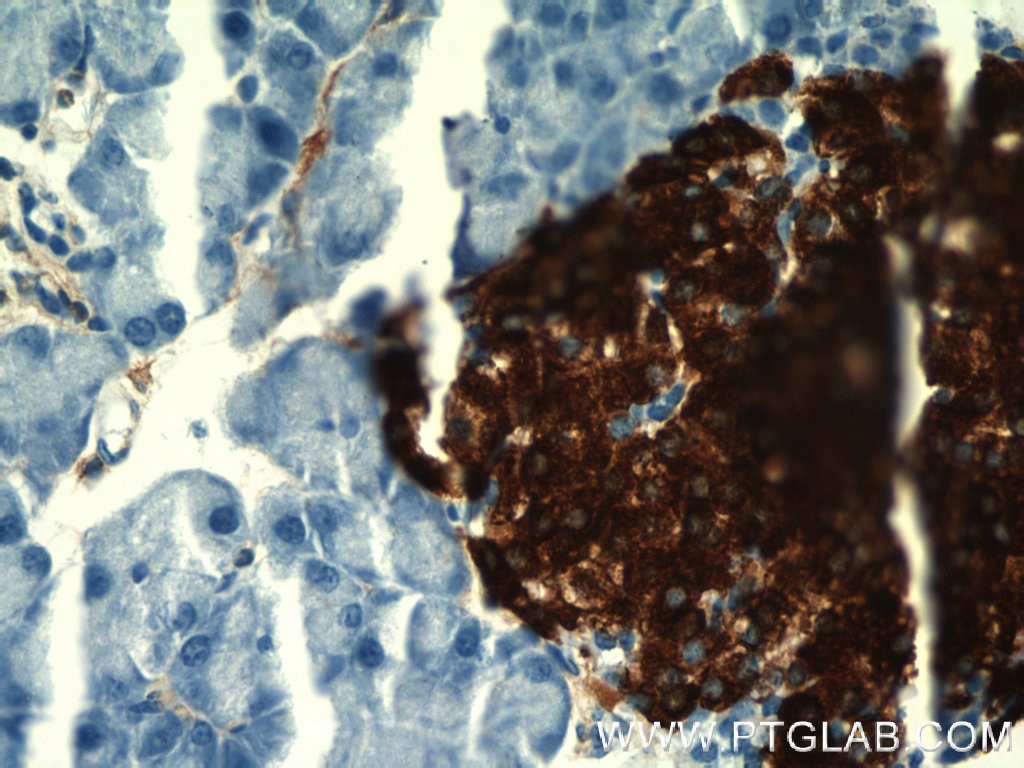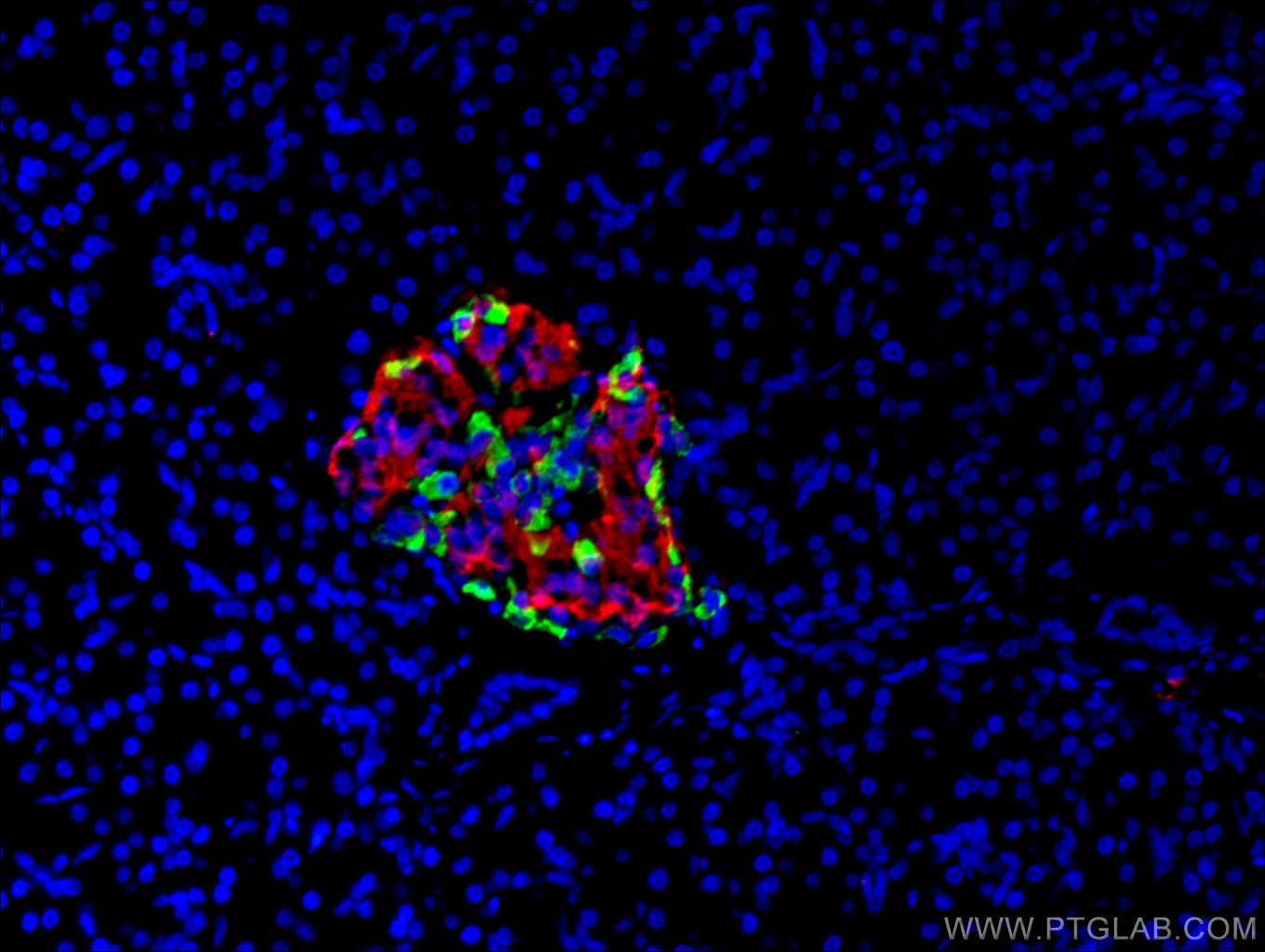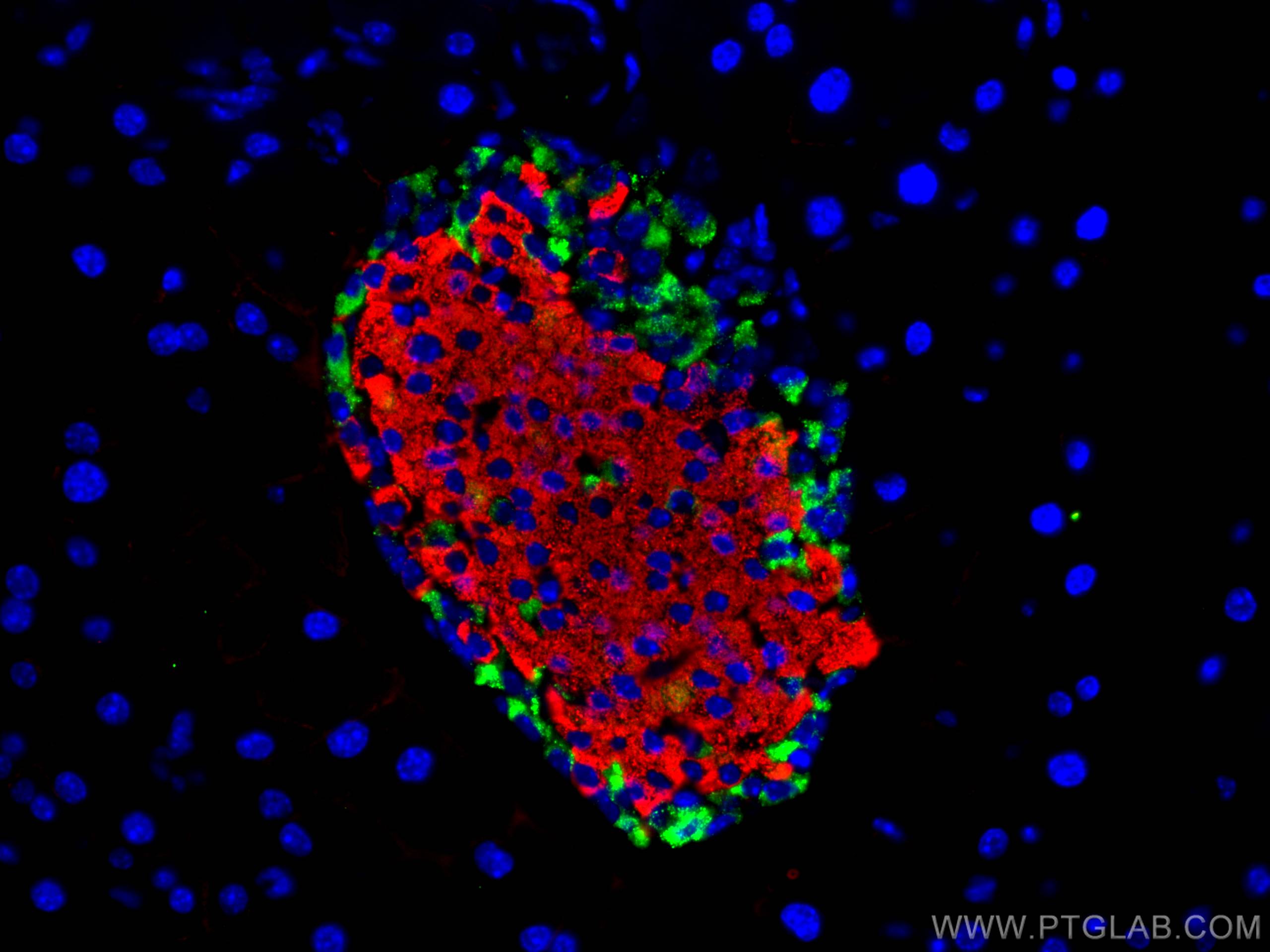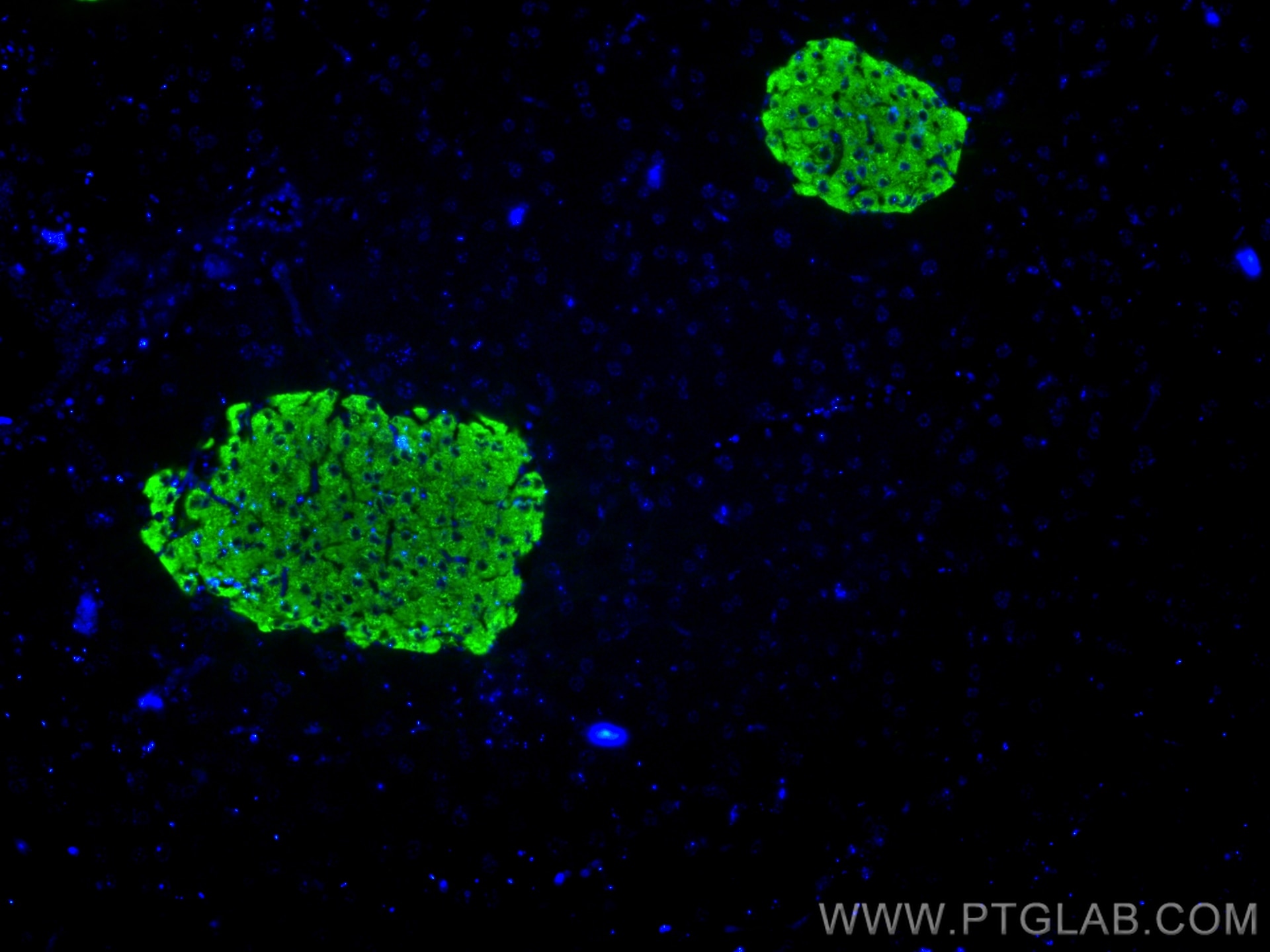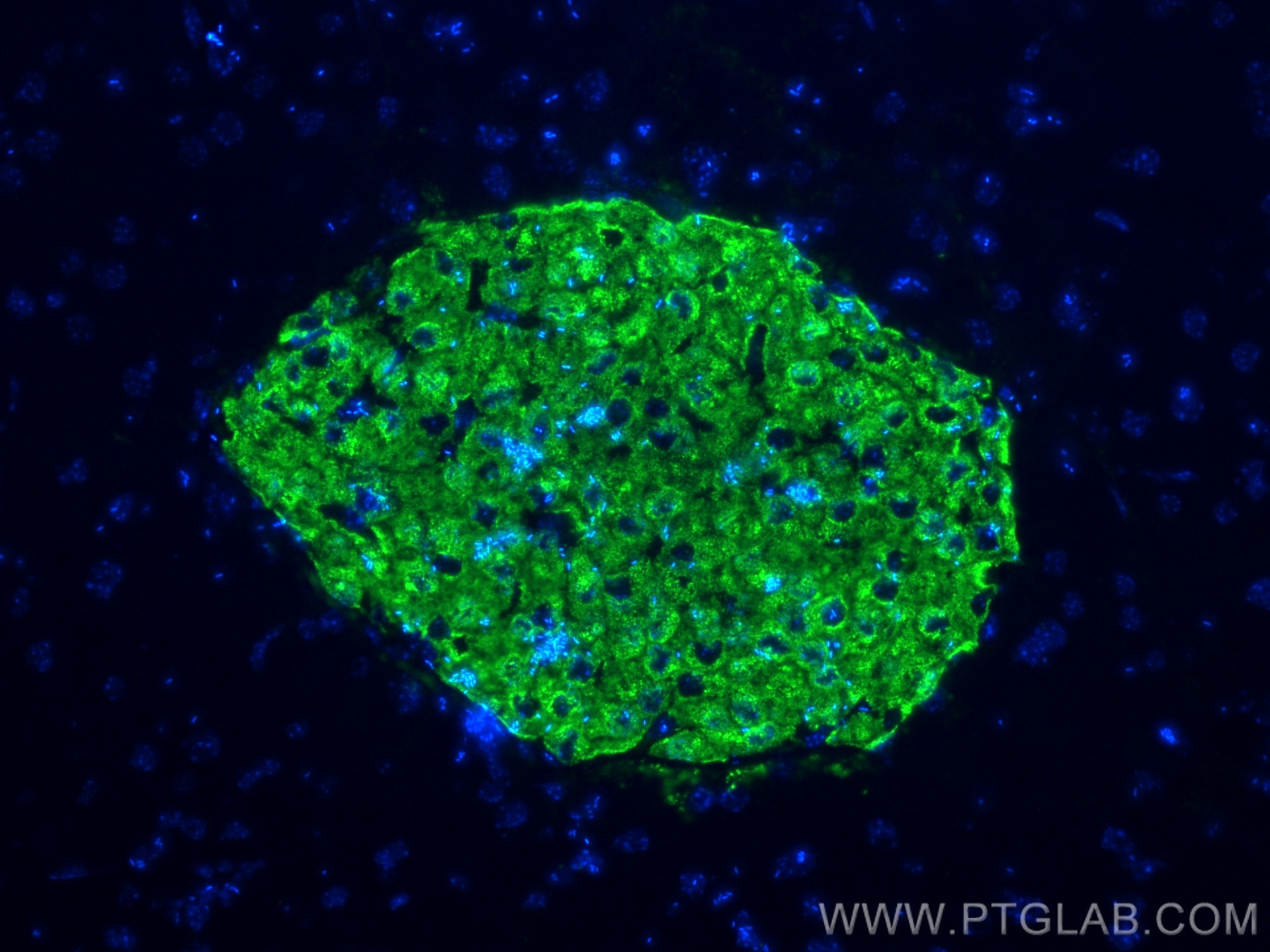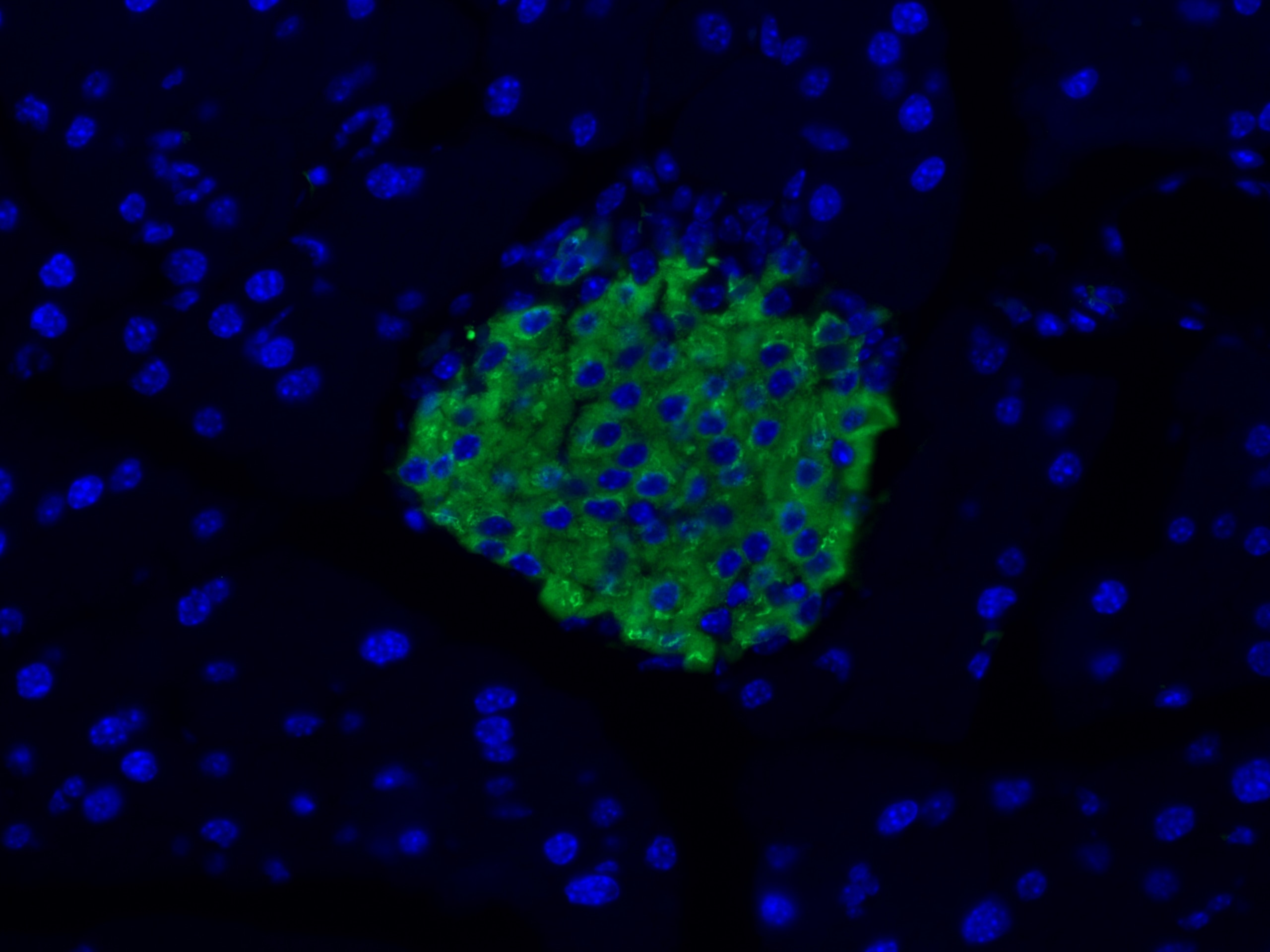INS Monoklonaler Antikörper
INS Monoklonal Antikörper für IHC, IF-P, Indirect ELISA
Wirt / Isotyp
Maus / IgG2a
Getestete Reaktivität
human, Maus, Ratte
Anwendung
IHC, IF-P, Indirect ELISA
Konjugation
Unkonjugiert
CloneNo.
4B6A7
Kat-Nr. : 66198-1-PBS
Synonyme
Geprüfte Anwendungen
Produktinformation
66198-1-PBS bindet in IHC, IF-P, Indirect ELISA INS und zeigt Reaktivität mit human, Maus, Ratten
| Getestete Reaktivität | human, Maus, Ratte |
| Wirt / Isotyp | Maus / IgG2a |
| Klonalität | Monoklonal |
| Typ | Antikörper |
| Immunogen | INS fusion protein Ag8630 |
| Vollständiger Name | INS |
| Berechnetes Molekulargewicht | 110 aa, 12 kDa |
| GenBank-Zugangsnummer | BC005255 |
| Gene symbol | INS |
| Gene ID (NCBI) | 3630 |
| Konjugation | Unkonjugiert |
| Form | Liquid |
| Reinigungsmethode | Protein-A-Reinigung |
| Lagerungspuffer | PBS only |
| Lagerungsbedingungen | Store at -80°C. 20ul Größen enthalten 0,1% BSA. |
Hintergrundinformationen
INS is a peptide hormone, produced by beta cells of the pancreas, and is central to regulating carbohydrate and fat metabolism in the body. It participates in glucose utilization, protein synthesis and in the formation and storage of neutral lipids. INS is synthesized as a precursor molecule, pro-INS, which is processed prior to secretion. A- and B-peptides are joined together by a disulfide bond to form INS, while the central portion of the precursor molecule is cleaved and released as the C-peptide. Defects in INS results in type 1 diabetes mellitus. INS may also exist 36 kDa form corresponding to the hexameric INS form.
